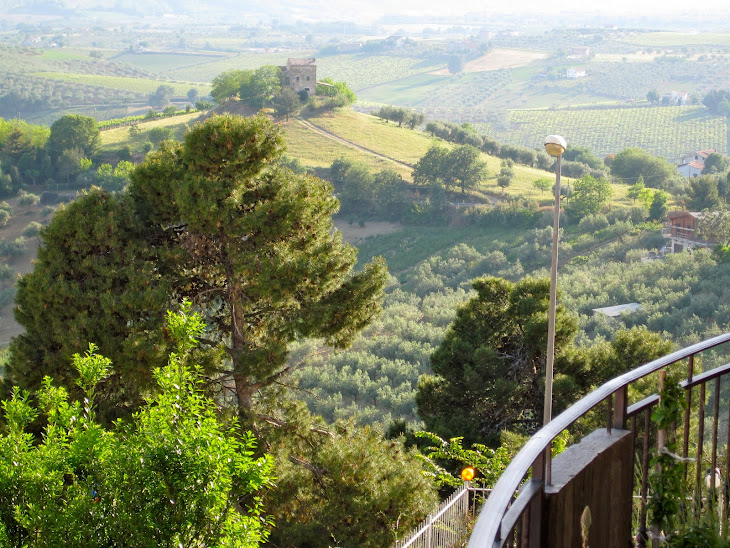24 October 2013
Forgotten Language
Sprinkle rosemary liberally for memory
to bring back practices long forgotten.
The killing of wise women for generations
obliterated knowledge once common
of flowers, herbs, weeds used to foster health,
sometimes to cure, oft times to prevent, perhaps to sooth,
to ease birth and death, part of every life,
to leave us less alone in all we face.
Cast witch hazel around to conjure spells,
powerful spells to heal this old hatred of women,
their special powers, no longer burned at the stake
but raped, covered, silenced, denigrated
throughout the world, left with wormwood and yew.
We dance a lamentation around the aspen trees.
Sprinkle rosemary liberally for memory
and wave the willow as we mourn.
What oneness with flowers, bush or tree can restore
this healing power in the service of all? We'll surround
ourselves with zinnia, orange blossom and black poplar, bury
ourselves in persimmon until lilies fill our valleys and hazel trees bloom again.
Kerry, over at Imaginary Gardens with Real Toads has a fascinating bit of history and information to encourage us writing in the language of flowers.
For this poem: rosemary- remembrance, witch hazel- spells, wormwood- absence, yew- sorrow, aspen tree- lamentation, weeping willow- mourning, zinnia- thoughts of absent friends, orange blossom- woman's worth, black poplar- courage, persimmon- bury me amid nature's beauties, lily of the valley- return of happiness, hazel- reconciliation, peace.
Subscribe to:
Post Comments (Atom)

Very striking imagery in this, Mary--and indeed, too much sad truth. Nature itself, like the feminine, seems terribly raped and abused in our time, and we all suffer for it.
ReplyDeleteI agree with that link between the feminine and nature, both in degradation and in source of rebirth.
DeleteWhat a lovely ode to women, past & present who have been cursed & burned & degraded ~ That last stanza spoke of hope, love & reconciliation ~ Enjoyed your liberal sprinkling of the flowers all through out ~
ReplyDeleteGrace
We've lost so much but I liked where this ended up in the hope through nature.
Deletewow, what a strong message, delivered so beautifully! i love the slant rhymes in here too, Mary. very nice.
ReplyDeleteI'm smiling because I started out in a very different direction but when I put words to paper this lament emerged.
DeleteOh, your ending really tangled the thoughts of remembrance!
ReplyDeleteSad n' truthful~
Powerful
I believe the oneness with nature can restore us, it's the only way, since so much has been lost.
DeleteThis is so articulate. I appreciate your references to the treatment of women through the ages, especially those with arcane knowledge of flowers and herbs.
ReplyDeleteWomen with knowledge and skills of healing were feared, targeted and killed for generations leaving a gap that persists and into which the medical establishment led by men stepped. We lost so much in the process.
DeleteFascinating!
Deletea sad touch on the reminder of so many that were killed...and the knowledge lost in their passing....also the knowledge of nature and understanding of it as well that was lost....smiles....
ReplyDeleteThe treasure was their knowledge used to serve us all, its loss- immeasurable. But along with it went the status of women.
DeleteHonestly, if everyone stepped outside and walked (and observed) nature for 30 minutes a day - what a difference in attitude (peace) we would have. I truly believe that. The more disconnected we become with nature, the more dangerous and selfish we become.
ReplyDeleteI'm with you in this one, Margaret. Fostering that oneness with nature is our way back to the protection of nature and esteem of the feminine.
DeleteYou truly did speak in the language of flowers, Mary! Beautiful emotive writing. :)
ReplyDeleteThanks, Hannah, I enjoyed this prompt.
DeleteSo sad that women who used flowers for healing and to make life richer were viewed with such fear and disdain. You certainly spoke in the language of flowers.
ReplyDeleteI like Margaret's approach, let's go out into nature and regain our relationship with the flowers, herbs, bush, trees.
DeleteWow. You just get more and more powerful in your messages and skills. Lots of history and wisdom and beauty here.
ReplyDeleteIt's our history and as crones with daughters and granddaughters it becomes more important to restore the wisdom and the status.
Delete